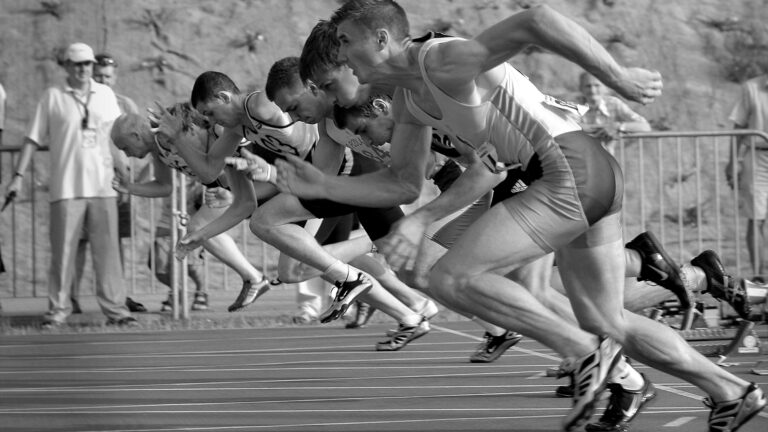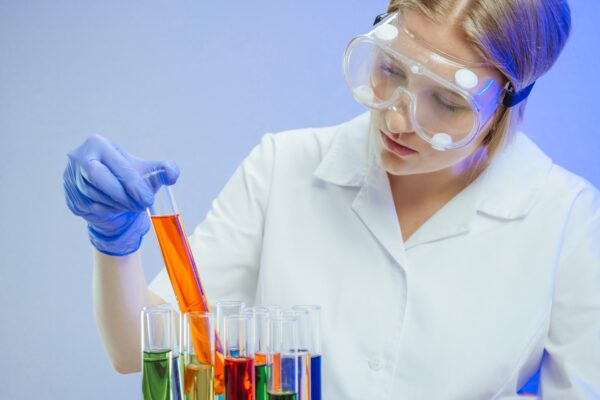Testosterone, the primary male sex hormone, plays a pivotal role in various aspects of men’s health, including physical performance. Understanding the intricate relationship between testosterone and physical performance can help you optimize your workouts, enhance your strength, and achieve your fitness goals. In this comprehensive guide, we delve into the science behind testosterone, its impact on physical performance, and strategies to naturally boost your testosterone levels.
- Understanding Testosterone
- Testosterone and Muscle Growth
- Testosterone and Strength
- Testosterone and Endurance
- Testosterone and Fat Loss
- Natural Ways to Boost Testosterone Levels
- Testosterone and Aging
- Testosterone and Overall Health
- Conclusion
- Sources and Links
- FAQs: Testosterone and Physical Performance
- Question: How does testosterone influence physical performance?
- Question: Can boosting testosterone improve athletic performance?
- Question: What are natural ways to enhance testosterone for better performance?
- Question: Does age affect testosterone levels and physical performance?
- Question: Are there risks to using synthetic testosterone for performance enhancement?
- Question: How can I measure my testosterone levels?
Understanding Testosterone
Testosterone is a steroid hormone that belongs to the androgen group. It is primarily produced in the testes and, to a lesser extent, in the adrenal glands. Testosterone is responsible for the development of male secondary sexual characteristics, such as increased muscle mass, deeper voice, and facial hair. It also plays a crucial role in sperm production, libido, and overall energy levels.
The Role of Testosterone in the Body
Testosterone influences various physiological processes in the body. It promotes protein synthesis, which is essential for muscle growth and repair. Additionally, testosterone enhances the production of red blood cells, which are vital for oxygen transportation and endurance. It also regulates fat distribution, bone density, and cognitive function.
Testosterone and Muscle Growth
One of the most significant benefits of testosterone is its impact on muscle growth. Testosterone stimulates muscle protein synthesis, which is the process by which muscles repair and grow. Higher testosterone levels are associated with increased muscle mass and strength. This is why testosterone replacement therapy is often used to treat conditions like hypogonadism, where low testosterone levels hinder muscle development.
Mechanisms of Muscle Growth
Testosterone promotes muscle growth through several mechanisms:
- Increased Protein Synthesis: Testosterone enhances the rate at which muscles produce proteins, leading to faster repair and growth.
- Enhanced Satellite Cell Activity: Satellite cells are responsible for muscle repair and growth. Testosterone activates these cells, promoting muscle hypertrophy.
- Reduced Protein Breakdown: Testosterone inhibits the breakdown of muscle proteins, helping to maintain muscle mass.
- Increased Insulin-Like Growth Factor-1 (IGF-1): Testosterone stimulates the production of IGF-1, a hormone that promotes muscle growth and repair.
Testosterone and Strength
Testosterone is closely linked to strength and power. Higher testosterone levels are associated with increased strength, which is why many athletes and bodybuilders seek to optimize their testosterone levels. Testosterone enhances strength by promoting muscle growth, improving neuromuscular function, and increasing red blood cell production, which enhances oxygen delivery to muscles.
Neuromuscular Function
Testosterone improves neuromuscular function by enhancing the communication between nerves and muscles. This results in more efficient muscle contractions, leading to increased strength and power. Additionally, testosterone promotes the growth of motor neurons, which are responsible for transmitting signals from the brain to the muscles.
Testosterone and Endurance
While testosterone is often associated with strength and muscle growth, it also plays a crucial role in endurance. Testosterone enhances endurance by increasing red blood cell production, which improves oxygen transportation to muscles. This is particularly beneficial for endurance athletes, such as runners and cyclists, who require sustained energy levels over extended periods.
Oxygen Transportation
Testosterone stimulates the production of erythropoietin (EPO), a hormone that promotes red blood cell production. Increased red blood cell count enhances oxygen transportation to muscles, improving endurance and reducing fatigue. This is why some endurance athletes use testosterone supplements to enhance their performance, although this practice is controversial and often banned in competitive sports.
Testosterone and Fat Loss
Testosterone is not only beneficial for muscle growth and strength but also for fat loss. Higher testosterone levels are associated with increased fat burning and improved body composition. Testosterone promotes fat loss by enhancing metabolism, increasing lipolysis (the breakdown of fat), and reducing fat storage.
Metabolism and Lipolysis
Testosterone enhances metabolism by increasing the basal metabolic rate (BMR), which is the rate at which the body burns calories at rest. Additionally, testosterone promotes lipolysis, the process by which fat is broken down and used as energy. This results in reduced fat storage and improved body composition.
Natural Ways to Boost Testosterone Levels
While testosterone replacement therapy is an option for those with clinically low testosterone levels, there are several natural ways to boost testosterone levels and enhance physical performance.
Exercise and Training
Regular exercise is one of the most effective ways to naturally boost testosterone levels. Resistance training, in particular, has been shown to increase testosterone levels significantly. High-intensity interval training (HIIT) and compound movements, such as squats, deadlifts, and bench presses, are particularly effective in stimulating testosterone production.
Diet and Nutrition
A balanced diet rich in proteins, healthy fats, and carbohydrates can help optimize testosterone levels. Foods high in zinc, such as oysters, beef, and spinach, are particularly beneficial, as zinc is essential for testosterone production. Additionally, foods rich in vitamin D, such as fatty fish and egg yolks, can help boost testosterone levels.
Sleep and Recovery
Adequate sleep is crucial for testosterone production. Most testosterone is released during sleep, particularly during the REM (rapid eye movement) phase. Aim for 7-9 hours of quality sleep per night to optimize testosterone levels. Additionally, prioritize recovery by taking rest days and managing stress levels.
Supplements
Certain supplements can help boost testosterone levels naturally. These include:
- Vitamin D: Essential for testosterone production and overall health.
- Zinc: Crucial for testosterone production and immune function.
- Magnesium: Supports testosterone production and muscle function.
- Ashwagandha: An adaptogenic herb that has been shown to increase testosterone levels and reduce stress.
- Fenugreek: A herb that has been shown to increase testosterone levels and improve libido.
Testosterone and Aging
As men age, testosterone levels naturally decline. This decline can lead to various health issues, including reduced muscle mass, decreased strength, increased fatigue, and lowered libido. Maintaining optimal testosterone levels through lifestyle changes and, if necessary, medical interventions can help mitigate these effects and improve overall health and well-being.
Age-Related Testosterone Decline
Testosterone levels typically peak in a man’s late teens to early 20s and gradually decline with age. By the time a man reaches his 40s, testosterone levels may have decreased by as much as 1-2% per year. This decline can accelerate with poor lifestyle habits, such as a sedentary lifestyle, poor diet, and chronic stress.
Managing Testosterone Levels with Age
To manage testosterone levels with age, focus on the following strategies:
- Regular Exercise: Engage in regular resistance training and high-intensity interval training to stimulate testosterone production.
- Balanced Diet: Consume a diet rich in proteins, healthy fats, and carbohydrates, with an emphasis on foods high in zinc and vitamin D.
- Adequate Sleep: Prioritize quality sleep to support testosterone production.
- Stress Management: Manage stress through techniques such as meditation, yoga, and deep breathing exercises.
- Medical Interventions: If lifestyle changes are not enough, consult a healthcare provider about testosterone replacement therapy or other medical interventions.
Testosterone and Overall Health
Maintaining optimal testosterone levels is not only beneficial for physical performance but also for overall health and well-being. Testosterone plays a crucial role in various physiological processes, including cognitive function, mood regulation, and cardiovascular health.
Cognitive Function and Mood
Testosterone is essential for cognitive function and mood regulation. Optimal testosterone levels are associated with improved memory, concentration, and mental clarity. Additionally, testosterone helps regulate mood by influencing the production of neurotransmitters, such as serotonin and dopamine.
Cardiovascular Health
Testosterone is beneficial for cardiovascular health. It helps regulate blood pressure, improve lipid profiles, and reduce the risk of heart disease. Optimal testosterone levels are associated with a lower risk of cardiovascular events, such as heart attacks and strokes.
Conclusion
Testosterone is a powerful hormone that plays a crucial role in men’s health and physical performance. Understanding the relationship between testosterone and physical performance can help you optimize your workouts, enhance your strength, and achieve your fitness goals. By focusing on natural ways to boost testosterone levels, such as regular exercise, a balanced diet, adequate sleep, and stress management, you can unlock your peak potential and improve your overall health and well-being.
So, buddy, let’s get out there and make the most of our testosterone! With the right strategies and a bit of dedication, we can achieve our fitness goals and live our best lives. Stay strong, stay healthy, and keep pushing those limits!
Disclaimer: This article is for informational purposes only and should not replace professional medical advice, diagnosis, or treatment. Always consult with a healthcare provider before starting any new supplement or exercise program.
Sources and Links
To provide you with the most accurate and comprehensive information, we have gathered data from various reputable sources. Below are some of the key references and links that were instrumental in compiling this article:
- Mayo Clinic – Testosterone Therapy: Potential Benefits and Risks as You Age
- This article from the Mayo Clinic provides an in-depth look at the benefits and risks of testosterone therapy, particularly as men age.
- Harvard Health Publishing – Testosterone — What It Does and Doesn’t Do
- Harvard Health Publishing offers a detailed overview of testosterone’s roles and limitations in the body, backed by scientific research.
- National Institutes of Health (NIH) – Testosterone and Aging: Clinical Research Directions
- The NIH provides insights into the clinical research directions regarding testosterone and aging, highlighting key studies and findings.
- WebMD – Testosterone and Muscle Growth
- WebMD explores the relationship between testosterone and muscle growth, offering practical tips for optimizing testosterone levels naturally.
- Journal of Clinical Endocrinology & Metabolism – Effect of Testosterone on Muscle Mass and Muscle Protein Synthesis
- This scholarly article delves into the scientific mechanisms by which testosterone influences muscle mass and protein synthesis.
- American Council on Exercise (ACE) – The Role of Testosterone in Exercise and Physical Performance
- ACE provides a comprehensive guide on how testosterone affects exercise and physical performance, with insights for fitness professionals.
- Examine.com – Testosterone: Scientific Review on Usage, Dosage, Side Effects
- Examine.com offers a detailed scientific review of testosterone, covering its usage, dosage, and potential side effects.
- Men’s Health – Natural Ways to Boost Testosterone Levels
- Men’s Health provides practical advice on natural methods to boost testosterone levels, including diet, exercise, and lifestyle changes.
- PubMed – Testosterone and Cardiovascular Health
- This PubMed article explores the relationship between testosterone and cardiovascular health, highlighting the benefits and potential risks.
- Endocrine Society – Testosterone Deficiency and Its Treatment
- The Endocrine Society offers a detailed guide on testosterone deficiency, its symptoms, and treatment options.
These sources provide a wealth of information on testosterone and its impact on physical performance, helping you make informed decisions about your health and fitness goals.
FAQs: Testosterone and Physical Performance
Question: How does testosterone influence physical performance?
Testosterone plays a crucial role in muscle development, strength, and endurance by promoting protein synthesis, increasing red blood cell production, and supporting energy levels.
Question: Can boosting testosterone improve athletic performance?
Yes, healthy testosterone levels can enhance strength, recovery, and stamina, contributing to better athletic performance. However, excessive boosting, especially through artificial means, may have health risks.
Question: What are natural ways to enhance testosterone for better performance?
Natural methods include resistance training, maintaining a nutrient-rich diet, reducing stress, getting quality sleep, and avoiding excessive alcohol consumption.
Question: Does age affect testosterone levels and physical performance?
Yes, testosterone levels naturally decline with age, which can impact muscle mass, energy, and recovery. Regular exercise and healthy habits can help mitigate these effects.
Question: Are there risks to using synthetic testosterone for performance enhancement?
Using synthetic testosterone or anabolic steroids without medical supervision can lead to serious side effects, including cardiovascular issues, liver damage, hormonal imbalances, and mood disorders.
Question: How can I measure my testosterone levels?
Testosterone levels can be measured through a blood test performed by a healthcare professional. This helps assess if levels are within the normal range or if further evaluation is needed.





